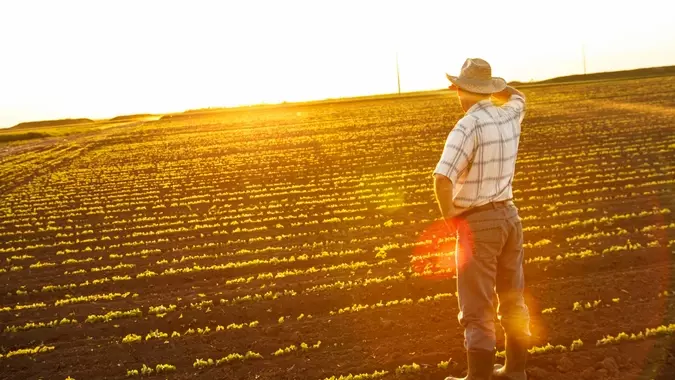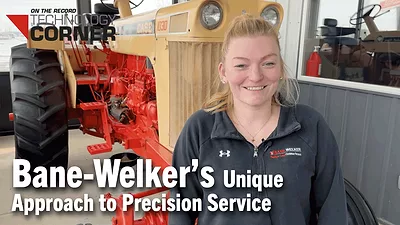Faced with climate change, a demographic crisis and a growing population, farmers are investing in precision technologies to keep agriculture alive — and they’re attracting a fresh generation of talent in the process.
The average age of an American farmer is nearly 60 years old, which has significant impacts on the potential future of food.
“As farmers age out of the profession and fewer enter the field, we risk becoming even more reliant on the long and complicated supply chains that contribute to climate change and exorbitant prices," writes Dave Dinesen in Entrepreneur. "This has been a growing problem for decades, from Kenya to Kansas, as young people in rural areas have left home to pursue careers outside the family farm, and fewer move in to fill the void.”
Take Mike Rigby, a fourth-generation rancher in Utah who would routinely go to cattle auctions on weekends and see 80-year-old ranchers lining up to sell livestock. They had two problems: They were fighting against historic droughts to keep their cattle fed, and they lacked a successor.
In an effort to avoid the same fate, Rigby turned to indoor growing technology to stabilize his feed source and give his kids hope of someday taking over a viable operation.
The influx of technology on farms is stabilizing the operations in the immediate term and evolving the role of the farmer to include skillsets more relevant to a younger generation. A 2014 study by the Institute for Development Studies in the United Kingdom found one of the major reasons young people are hesitant to become farmers is their desire for higher education and white-collar jobs. As farms integrate more technology, there’s a growing demand for technologists and growing interest from millennials and Gen Z to get into the field.
“The world’s brightest minds are always attracted to the biggest problems, and right now, you’d be hard pressed to find a more important challenge than stabilizing food production," writes Dinesen. "There is no industry in the world that affects more people in perpetuity than agriculture. This has led to incredible innovation in agriculture technology, with the global market growing at about 9% annually to an estimated $22.5 billion market by 2026.”
Farmers, who have always been keen adopters of technology, are contributing to the innovation by diversifying operations and incorporating artificial intelligence, remote sensing, IoT and more.
That diversification is also creating space for a whole new skill set on farms, one that aligns with the talents and interests of Gen Z—a generation of digital natives driven by problem-solving, sustainability and developing skills. The future farmer might look different, but their values remain the same. Feeding human beings is a noble profession and one that will never be simple. The good news is that a new generation of talent is emerging and. like Rigby, they have a better set of tools to work with.






